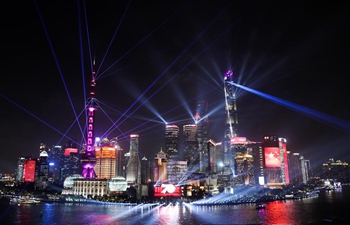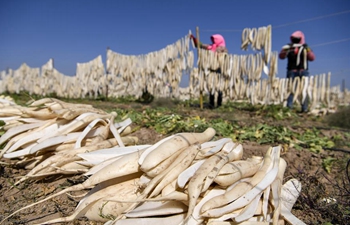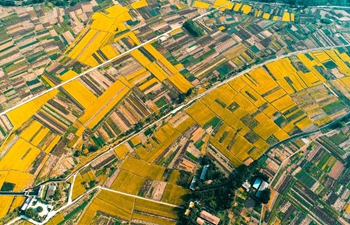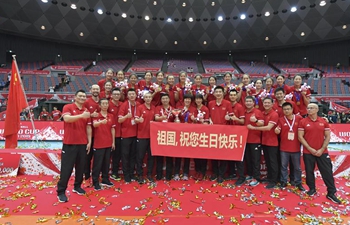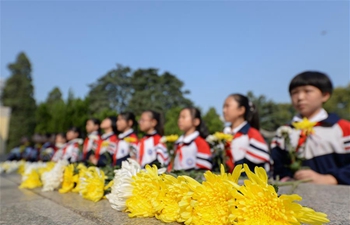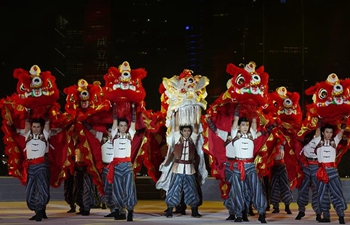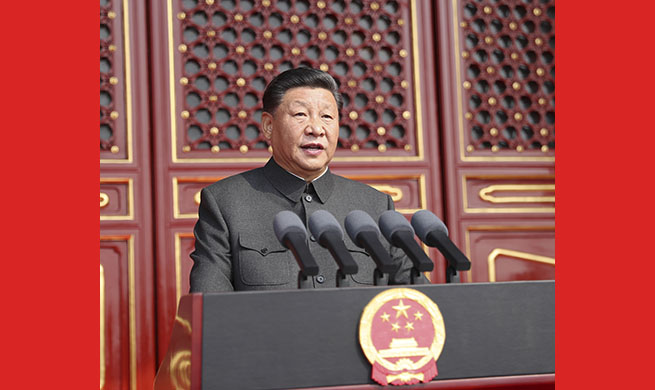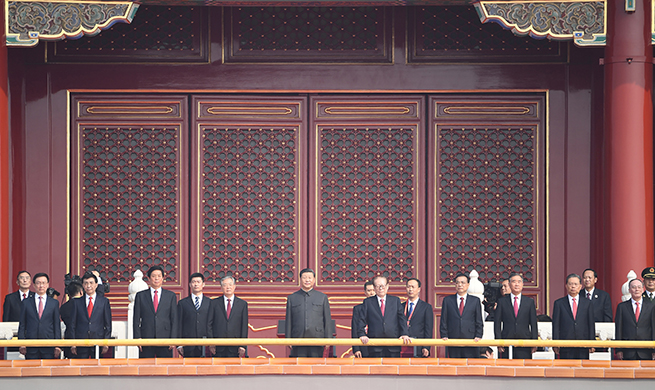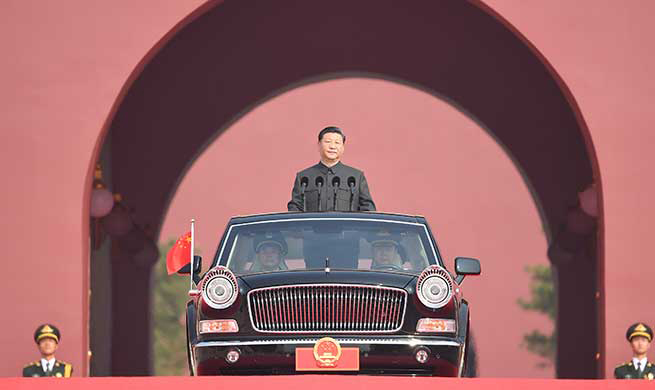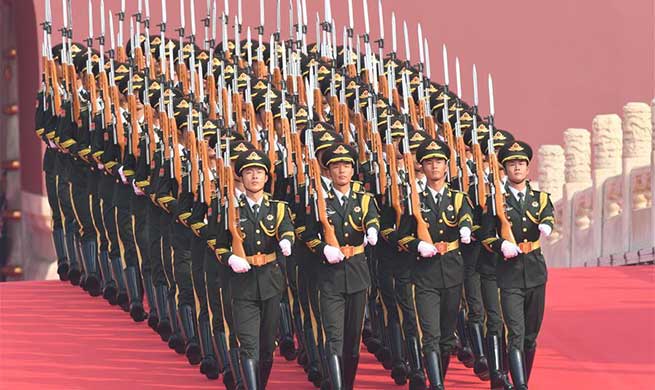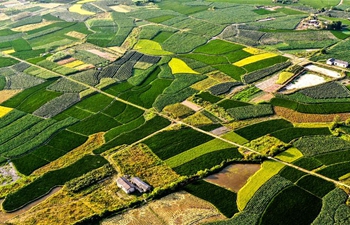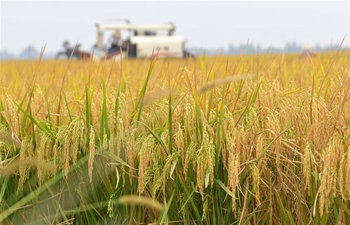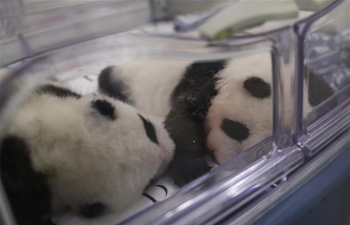by Peter Mertz
DENVER, the United States, Sept. 30 (Xinhua) -- In the vast American West, where conservative states spread out, strict immigration laws are slowing population growth and reducing demographic diversity.
But not in Denver, the Colorado state's capital city. Here, local officials openly express their desire for more diversity and vocally criticize the U.S. federal government for initiating trade wars and ramping up anti-immigrant policies.
IMMIGRATION HUB
Last week, 200 immigrants from 61 countries were admitted to U.S. citizenship in south of Denver at a large naturalization ceremony.
It was part of the 200 ceremonies held by the U.S. Citizenship and Immigration Services (USCIS) nationwide in a week commemorating the U.S. Constitution, when 30,000 people were naturalized.
Denver's USCIS office completed 7,600 naturalization application in 2017, and 9,400 in 2018. That number is expected to rise again in 2019 as immigrants are choosing to the city for its liberal and business-friendly atmosphere.
Denver is becoming more and more welcoming to people of ethnic diversity, said Marin Toscano, owner and founder of Foodbridge, a nonprofit group claimed to support minority-owned catering businesses.
And Toscano's nonprofit is at the right place at the right time. Denver has a greater demand for authentic ethnic cuisine as small, ethnic businesses are on the rise. Among the local foodies, one who called Boulder had even been in China's Yunnan Province as a Fulbright Scholar to study Chinese cuisine.
Prakriti Rai, 22, whose parents own an Indian-Nepalese grocery in Aurora, just east of Denver, told the Denver Post that the community has been welcoming to her and her family.
"(We've had) mostly positive experiences," she said of her family's Indian-Nepalese store. "We haven't really faced racial discrimination."
Discrimination is on the minds of many U.S.-bound immigrants these days, who worries hate groups are increasingly active as the White House continued to ramp up anti-immigrant rhetoric as a political tool.
WHY DENVER
In 2019, Denver was ranked the top three "best place to live" by U.S. News and World Report, for the sixth straight year. In June, the Vancouver-based Resonance Consultancy called Denver a top "large city" in the United States, and last month, CityLab website listed Denver as a "top 5" U.S. city by population growth and job opportunity.
"We're about to tell you something you probably already could have guessed: Denver is the fastest-growing large city in the country, according to census data," local KUSA TV news channel reported in 2016.
That trend has not stopped since then, as unemployment remains low at 3.6 percent and immigrants keep coming.
Aurora, a city in the eastern part of the 3.1-million-population Denver metropolitan area, has considerable ethnic diversity. The city had the 16th-highest foreign-born population per capita among U.S. cities with a population of 300,000, according to U.S. Census date in 2009.
In 2016, nearly one in five Aurora residents is foreign born. The largest proportion of its immigrant population is from Mexico, followed by Ethiopia, El Salvador and Korea, according to city demographics.
Local government has responded accordingly, rolling out public and private aid programs in nearly every prefecture to help immigrants and refugees integrate into local lives.
FEAR NEW DENT
With word of Denver's attractiveness reaching global ears, Denver's Office of Economic Development (DOED) has added three full-time employees for global development and business, DOED Communications Director Derek Woodberry told Xinhua.
Denver's top politician, meanwhile, has done his best to save the city from becoming the collateral damage under Trump administration's rhetoric aimed at immigrants and other countries including China.
The administration's multi-front trade wars are dragging down growth, slowing the economy in the second half of the year even as inflation stays low, showed new data released Friday by the U.S. Commerce Department.
Denver Mayer Michael Hancock earlier blamed Washington for economic slowdown. When unveiling the city's tight 2020 budget in early September, he said that the president was "playing games" with the U.S. economy and leaving cities to pick up the pieces.
Hancock said that the president was "instigating a trade war and creating economic instability."
Elected since 2011, the African American mayor is known for embracing cultural diversity and for helping create an oasis in the western America where immigrants could feel at home.
